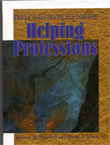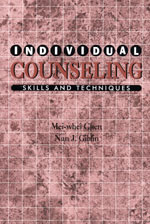Thomas M. Skovholt and David Rivers
University of Minnesota
“This is an excellent book for beginners which incorporates very complex issues within a very clear writing style. It is the best book I have seen written for this level, and I want to use it for my class.”
Susan Neufeldt, Ph.D., University of California, Santa Barbara
“This is an exceptional book. It will make an excellent first text for helpers in training. I am confident that students will respond favorably to it because of its writing style and substance. There are helpful gems of wisdom scattered throughout the book.”
John Dagley, Ph.D., University of Georgia
“This is a good foundational book and the content is excellent. The primary strengths of the book are the exercises for skill-building, the writing style, and the use of therapy dialogues, examples, analogies and metaphors.”
Lisa Flores, Ph.D., University of Missouri
“What a pleasure it was to read and review this outstanding book! Throughout the book, the authors have been sensitive to cultural differences and issues and have provided useful exercises and dialogues.”
Mark Kiselica, Ph.D., University of Missouri
The primary focus of this book is on skills, strategies, and procedures used in the helping professions. It is an easy-to-read and highly informative text that explains the nuts and bolts of what helping is all about. The model for the book involves the four core areas of exploring client concerns, promoting client understanding, chartering a new course, and working for positive change. Activities within the four core areas are explored through the use of exercises and dialogues between helper and client.
A consistent structure within each chapter makes it easy to assimilate the information provided. The hypothetical dialogues at the end of each chapter demonstrate how helpers use the skills described in the chapters in real-life helping situations.
The book is appropriate for adoption for the beginning skills course in all the human service, education, and health professions such as counseling, social work, psychology, family therapy, nursing, and pastoral counseling. The text contains hundreds of ideas to help people become skilled in the art of helping others.
SPECIAL FEATURES
- Hypothetical dialogues at the end of each chapter showing skills for effective helping
- Exercises at the end of each chapter that let readers engage in role playing to practice skills discussed in the chapter
- Cultural concerns are woven throughout the text
- Includes step-by-step ideas for skill development
CONTENTS
Introduction
1. Introduction to Professional Helping
2. Seeking Professional Help
3. Diversity, Culture, and Helping
The Helping Process
4. Beginning, Maintaining, and Ending the Helping Process
5. Outcomes and Effectiveness of Helping
The Helping Relationship
6. Special Relationships Between Helper and Client
Exploring Client Concerns
7. Exploring the Unique World of the Client
8. Nonverbal Exploration Skills
9. Verbal Exploration Skills
10. Exploration Tools
Promoting Client Understanding
11. Striving Toward Honest Understanding
12. Skills for Promoting Client Understanding
Charting A New Course
13. Settings Goals
14. Identifying Actions
Working for Positive Change15. Taking Action
16. Evaluation
Helping Issues, Aspects, and Topics
17. Ethical and Legal Issues
18. Helping Theories
19. Research
Wrapping Up
20. Forty-Year Professional Journey
448 pages
0305/paperback/ISBN 978-0-89108-302-3
$68.00
|


